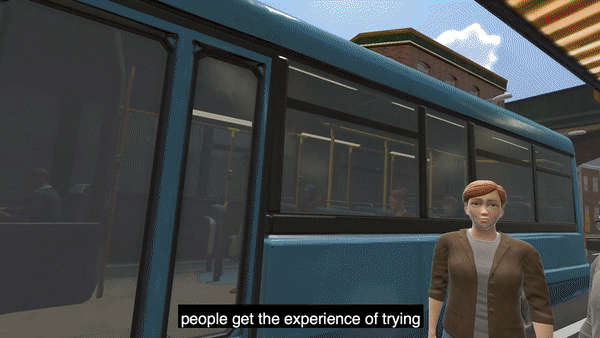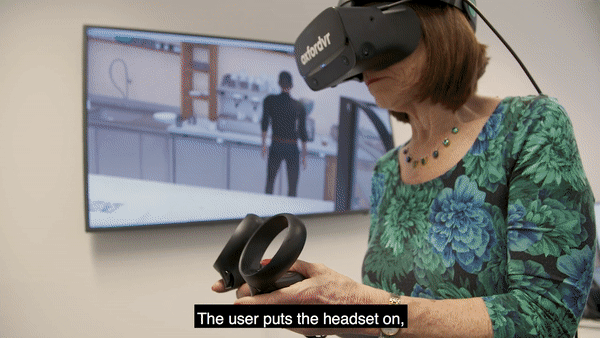Oxford VR (OVR), a U.K.-based virtual reality (VR) startup that emerged from Oxford University’s Department of Psychiatry back in 2017, has officially launched a VR-based therapy to help people overcome social anxiety.
While VR is still struggling to gain adoption outside of gaming, health care is one area where it has been making real inroads. OVR builds immersive technology that aims to improve people’s mental health, and last month the company raised $13 million to push its offering into health care systems around the world. With its social engagement VR technology already used by major health organizations like the U.K.’s National Health Service (NHS), OVR is demonstrating one way VR could enter the mainstream.
“Our vision is to turn the tide on life-interrupting mental illnesses, pushing the boundaries of clinical excellence and new technology to transform lives,” said June Dent, director of clinical partnerships at OVR.
Social impact
Social anxiety disorder, which is characterized by an intense fear of social scenarios, is thought to impact around 15 million people in the U.S. alone. It is also closely associated with other mental health conditions, such as agoraphobia, depression, panic disorder, and schizophrenia. With its social engagement therapy, OVR is using simulated environments to help people engage with situations similar to those they might encounter in the real world.
OVR social engagement is delivered to patients through weekly half-hour sessions. Each user puts on a VR headset and is greeted by a virtual coach who asks them to complete a range of tasks, such as traveling on a bus, buying groceries, ordering from a bar, or going to a doctor’s office. These kinds of situations are common triggers for people with social anxiety.
“The immersive nature of VR provides a powerful new way to engage users and helps them to regain confidence, feel safe, and overcome trigger situations,” Dent added.

Above: Oxford VR uses simulated environments to help people overcome social anxiety disorders

Above: Oxford VR uses simulated environments, such as buying goods in a cafe.
The program, which is designed on evidence-based cognitive-behavioral therapy (CBT), was developed by a team of clinicians, programmers, designers, artists, and animators and builds upon 20 years of clinical research from the company’s cofounder and chief commercial officer Daniel Freeman, who is also a professor of clinical psychology at Oxford University’s department of psychiatry.
Scalability
Perhaps the most important aspect of this approach is that the social engagement therapy is entirely automated, meaning it doesn’t require the presence of a qualified clinician — the session can be delivered by a staff member who has been trained to set up the VR headset. Given the affordability of VR headsets today, with an Oculus Go starting at around $200, leaning on VR as a treatment option will be viable for many health care providers — and could eventually open the door to remote home treatments.
OVR’s social engagement therapy is already being deployed by the NHS via its Improving Access to Psychological Therapies (IAPT) initiative, while a number of private U.K. health care providers are also using the service. Further afield, OVR is working with the University of Colorado’s National Mental Health Innovation Center, which is deploying the program through its network of community-focused providers, as well as AXA HK and the Chinese University of Hong Kong in Asia.
Aside from social anxiety disorders, OVR has carried out other clinical trials, including a VR-based treatment for those with a fear of heights that is now available to some NHS patients in the U.K. The company is also developing similar programs for treating depression and OCD, among other mental health conditions.
